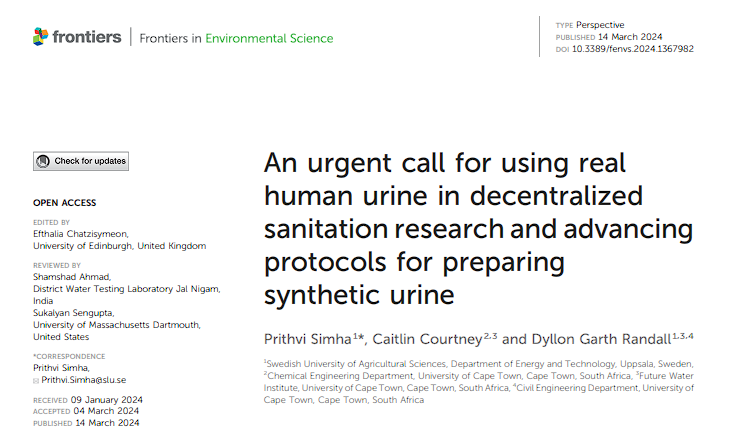Exciting news! At the Swedish University of Agricultural Sciences (SLU), where all three of Sanitation360’s founders have studied and now work, a new bathroom installation has been in the works. And as of last week, after an incredibly impressive effort by Jenna, version 2.0 is finally ready to be used on the 5th floor at the Department of Energy and Technology at SLU in Uppsala, Sweden.
The bathroom contains one of Laufen’s urine-diverting toilets, which we’ve connected to our urine concentrator – and now we’ve also added our own addition to the flush system. Usually, both urine and 220 ml of flushwater end up being diverted into the urine collection tank, per flush. Whilst this is no issue in terms of purity, it is an issue in terms of energy usage later on in the urine to fertilizer process.
Urine consists of about 95% water, which contains no nutrients. Therefore, our urine concentrator is designed to effectively remove/evaporate the water, leaving us with the nutritious 4% of the urine. This is already a large amount of water to remove and with additional flushwater in the system, it rapidly increases the energy requirements. To make it more sustainable, we want to reduce, and favourably completely stop, any flushwater from entering the urine collection tank and instead divert it to the wastewater pipe. This is exactly what our new installation now does – thanks to Jenna and David Fredriksson at Davitor AB.
There is now a sensor that detects incoming flushwater and triggers the valve to the urine collection tank to close. The system also has a reactor with a level sensor to enable automatic pumping of urine into to the concentrator, where the urine is dried.
So if you ever happen to be in Uppsala, make sure to give it a visit and let us know what you think of it!
The white container on the right side is our concentrator which the urine is first diverted into and then dried into a nutrient rich mass. Attached to the wall behind it is our newly installed system which detects when someone is flushing and closes the valve to the urine collection tank. The program showcased on the computer shows how the different valves and sensors are working together to achieve this. Lastly, you can see Laufen’s beautiful urine-diverting ”Save!” toilet which we are big fans of!









 The SLU Urban Futures hub in Ultuna has granted funding to three interdisciplinary projects focusing on the Urban Food-Energy-Water nexus, one of which is called “The AirCloset” that will be led by Prithvi Simha from SLU, Sweden and Gert van der Merwe from NUST, Namibia.
The SLU Urban Futures hub in Ultuna has granted funding to three interdisciplinary projects focusing on the Urban Food-Energy-Water nexus, one of which is called “The AirCloset” that will be led by Prithvi Simha from SLU, Sweden and Gert van der Merwe from NUST, Namibia.